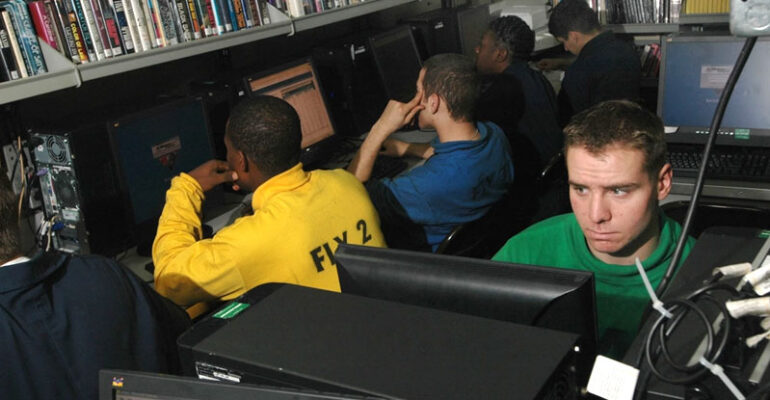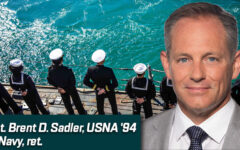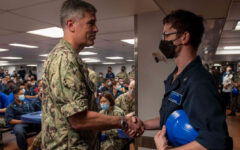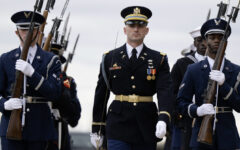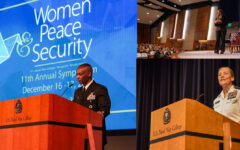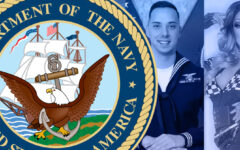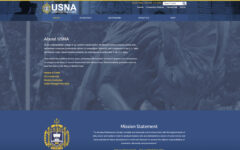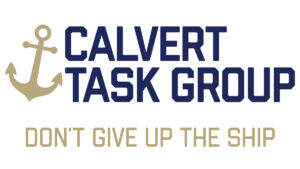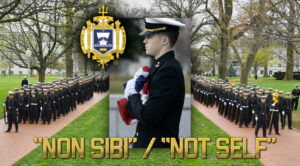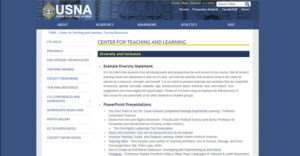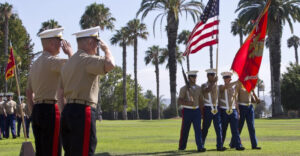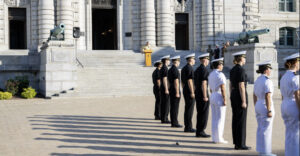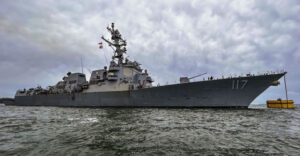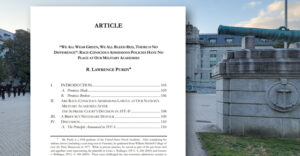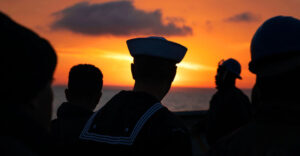Needless woke trainings degrade and demoralize the Navy
22 June 2023 2024-05-18 14:43Needless woke trainings degrade and demoralize the Navy
By Michael Rubin, former Pentagon official
Deployments are difficult for any military serviceman, but living on a ship for weeks, if not months, on end can be especially tough.
Lack of personal space is only part of the problem. Deployed sailors can go days, if not weeks, without fresh air. The grind is relentless. Sailors might stand watch or conduct specialty duties several hours per day, but they are never truly off duty.
Whether surface warfare officers, nuclear reactor engineers, pilots, or mechanics, there is always a test for which to prepare or more advanced material to study. Promotions depend upon passing a series of exams. Some enlisted members, meanwhile, pursue high school equivalency or college credits.
Bandwidth, however, is limited. Internet is available only a few hours per day for lower ranks, but lines can be long for computer terminals.
Ships cut internet connectivity for days to practice stealth. When WiFi returns, demand slows the system to a glacial pace. On some ships, it caan take a half-hour for an off-ship webpage to load.
Navy administrators, some of whom have never been to sea, do not care. They have added burdensome online training requirements for men at sea on top of the many other tasks they are already expected to fulfill.
Trainings that take an hour to complete while on land can take 10 times that time while at sea. Each task ends with a time-stamped certificate that must be printed. Sailors are lucky if there is no internet or printer glitch before they can get the printout. Otherwise, it is back to square one.
Among the training the 5,000 men and women living on an aircraft carrier must complete are units on
- equal opportunity and harassment,
- domestic abuse,
- sexual assault prevention and response awareness,
- combating human trafficking,
- risk management,
- personal financial management,
- countering disinformation, and
- sexual health and responsibility.
Add to that training on
- protecting personally identifiable information,
- cyber awareness,
- privacy,
- countering disinformation, and
- counterintelligence.
Traveling internationally under Navy orders also requires online survival, evasion, resistance, and escape training. Quite literally, I had to learn which caterpillars were edible and which ones were poisonous and how to evade hostile locals in order to disembark in Spain and fly home from Madrid.
Much of the training is common sense: Do not rape. Do not use prostitutes. Do not beat your spouse. A lengthy cyber unit may check an administrative box, but it will not replace common sense.
The growing mountain of such training will prevent sailors from focusing on core missions, though.
The Navy recommends some training, like suicide prevention, be face-to-face. This is important, especially as junior enlistees can find life onboard a ship stressful and isolating. Classroom space is at a premium, though. As the Navy adds other, less-crucial training to suicide prevention, it cancels more substantive units to free up classrooms.
Several carrier strike groups, for example, canceled or shortened classes about how Iran and its Islamic Revolutionary Guard Corps work and one on the China-Taiwan dispute in order to free up space for new, box-checking training requirements.
Ann Rondeau, president of the Naval Postgraduate School, decided the solution was to cancel in-person area studies classes onboard ships in favor of offering pre-recorded DVD lectures. The only problem? The ships do not have the bandwidth to support such a system, nor are such DVDs pedagogically effective when sailors and officers arrive with different skill sets and experiences and have questions about current developments.
The growing training bureaucracy fights for billeting and office space with more mission-essential elements. Which is more important? Space for yet another training administrator or a nuclear engineer?
The cost of political trends affects operational readiness in more immediate ways. Green fuel initiatives raise the expense of fuel for aircraft. As budgets stagnate, in practice, this means lessening practice flight hours for pilots, even if they must log a certain number of day and night landings every week.
Today, sailors and pilots pay the cost of the Navy’s virtue signaling and social engineering in morale, education, and readiness.
The online training regimen is corrosive to the Navy, counterproductive, and ineffective.
But the Pentagon’s civilian leaders appear not to care.
Michael Rubin ( @mrubin1971 ) is a contributor to the Washington Examiner’s Beltway Confidential. He is a senior fellow at the American Enterprise Institute.

